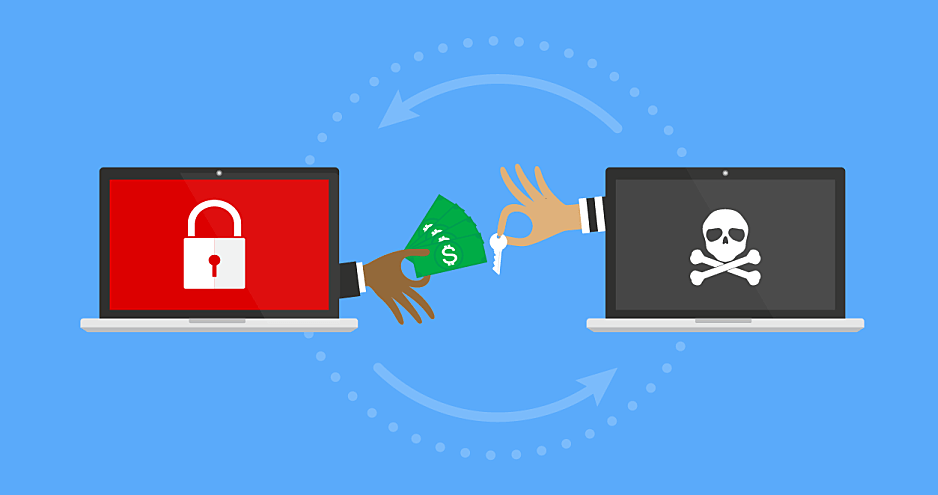Even though ransomware’s fortunately been on the decline more recently, it’s still a pressing threat to anyone who’s navigating this vast and wild west that is the online world. When you read the word “ransomware” even if you’re not sure what exactly it means, you’re probably hearing the fire alarms go off already.
Ransomware is a specific type of malware that encrypts a victim’s files. The attacker on the other end then demands a ransom from the victim in order to restore access to the victim’s data upon completion of the requested payment. Most often, victims are provided instructions for how to pay the ransom to ultimately get the decryption key. Talk about a stressful predicament for anyone to find themselves in!

Table of Contents
How does ransomware work?
Ransomware can take on many terrible forms. Most commonly though, ransomware comes across as a phishing scam. The toxic attachments are delivered to the victim in the form of an email that claims it’s a file they can trust. This of course couldn’t be further from the truth. Once the email is opened, the file is instantaneously downloaded, and the victim’s computer is taken over. This is especially quick when the victim has a social engineering tool already built-in on their computer.
Gaining administrative access from that avenue is dangerously easy for the perpetrator. Once the perpetrator gains access their most common next move is to encrypt the victim’s computer files and make it so that they can’t be decrypted unless the victim has the precious mathematical key, which is only known by the perpetrator demanding the ransom. Sometimes, the perpetrator will also pose as a law enforcement agency member and claim that they’ve gained knowledge of illicit content on the victim’s computer. This isn’t as common nowadays, but you should still know what to look out for in case they take that approach.
Who’s a common target for ransomware?
Sometimes, the hackers with the ransomware will go after universities because they often have small security teams and a user base that does a lot of file sharing already. They’ll also go after medical institutions and government agencies because they both have a lot of sensitive information on hand as well as the capital to dispense if they fear that information being leaked. The reputational risk ends up being those government agencies’ greatest weakness.
How do you prevent ransomware?
First and foremost, it’s essential to keep your operating system up-to-date and patched. You don’t want any weak points that a hacker might be able to exploit. Then, you never install software and grant it any privileges without knowing exactly where it originally came from. Those hackers can get real sneaky when it comes to trying to push those onto you when you’re already being bombarded by other system updates.
Lastly, you’ve got to back up those files. Your backups are your saving grace if you ever find yourself fielding one of those unfortunate cyber threats. Without backups, you basically accept the fact that if your operating system is compromised, all of your precious information might end up going with it. Nobody’s got time for all that.
We’ve hit on some of the biggest bits of knowledge when it comes to understanding the cybercrime world’s terrible beast that is ransomware. When it’s all said and done and you’ve established your stronghold, you still might find yourself in an unfortunate confrontation with a hacker who managed to surpass your defenses. From there, it’s up to you to run the cost-benefit analysis on whether or not it’s truly worth paying that hacker off, for access to your information again. Some companies will actually end up paying the ransom. Of course, when you do that, you always run the risk that the criminal you’re dealing with won’t uphold their word. It’s always best to just put up the defenses when you can, and contact a law enforcement agency if you end up dealing with one of those dang hackers. You can also read up on some Monstercloud Reviews. Those guys can pull through if you’re in a tight bind, and need the professionals to take over. It’s not worth it trying to go at these things alone.
My passion of providing Tech to Gadget lovers with the latest ups & downs happening in the World of Technology and innovation made this blog come true.
